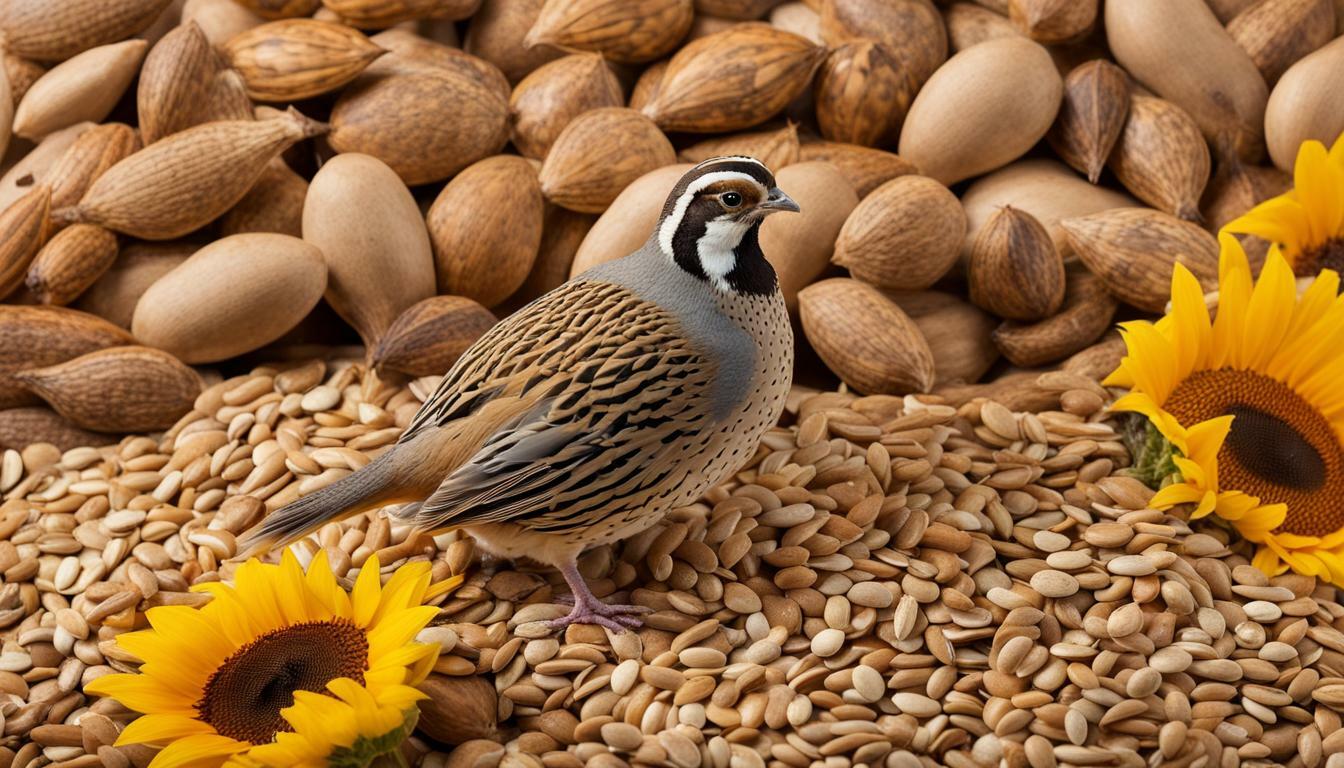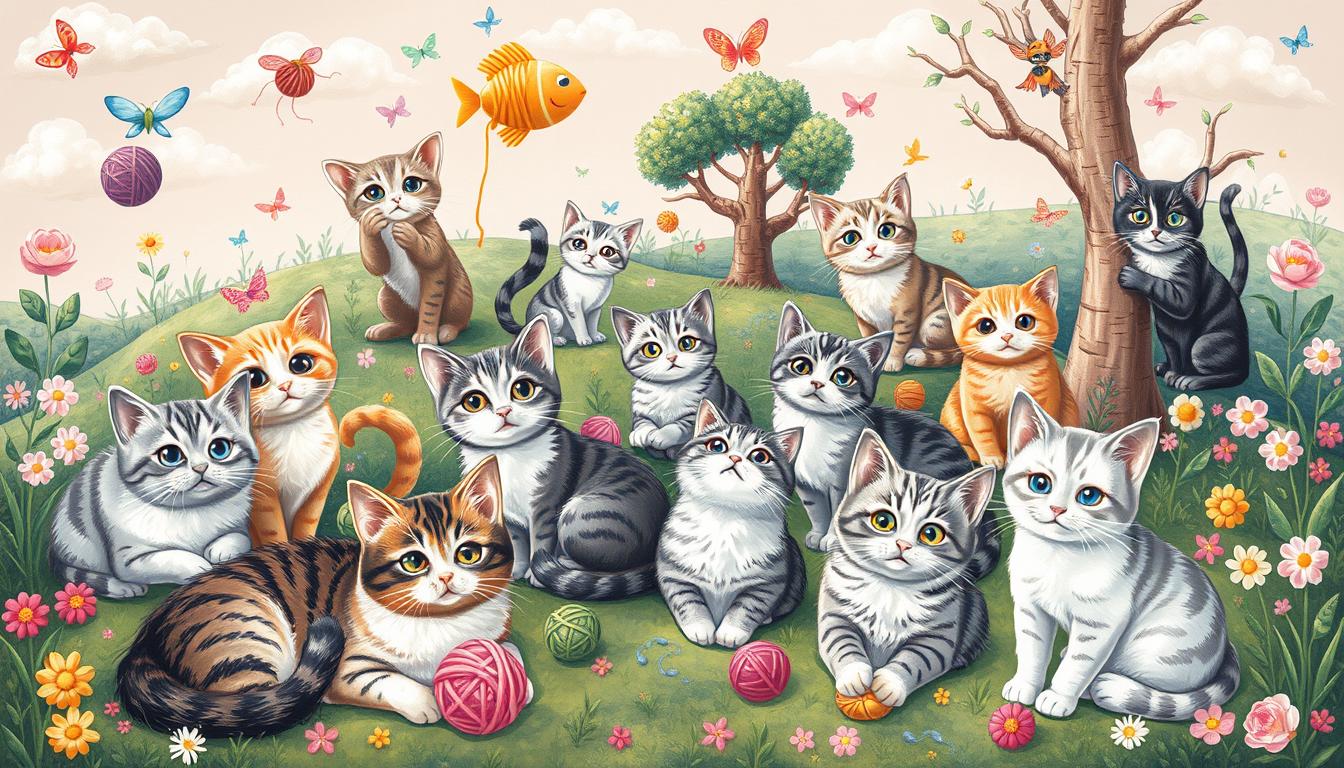Can Quail Eat Sunflower Seeds? Your Guide to Quail Diet

Table of content:
Sunflower seeds are a common treat offered to pet quail. But quail, like all birds, have specific nutritional requirements. So an important question for any quail owner is: can quail eat sunflower seeds?
The short answer is yes, quail can safely eat sunflower seeds in moderation as part of a balanced diet. Sunflower seeds offer nutritional benefits and can be a healthy supplement for quail. But there are also some potential downsides to be aware of when feeding sunflower seeds to your flock.
Are Sunflower Seeds Good for Quail?
Overall, yes sunflower seeds are good for quail in moderation. Sunflower seeds provide important vitamins, minerals, protein, and healthy fats that can benefit quail health.
Here are some of the reasons why sunflower seeds make a nutritious supplement for quail:
- Excellent source of protein and amino acids for growth and development
- High in vitamin E, B vitamins, and folate
- Good source of minerals like manganese, copper, phosphorus, magnesium, and selenium
- Provides healthy fats like linoleic acid, oleic acid, and palmitic acid
- High in fiber to support digestion
- Contains beneficial phytochemicals like lecithin and lignans
Sunflower seeds are naturally high in many of the key nutrients quail need in their diet for optimal health and egg production. The high protein and healthy fats help stimulate growth and development in young quail and egg production in breeding hens.
The vitamins, minerals, amino acids, fatty acids, and fiber found in sunflower seeds provide supplemental nutrition to round out a balanced diet.
So in moderation, sunflower seeds can be a beneficial addition to the diet for both meat and laying quail.
Nutritional Benefits of Sunflower Seeds for Quail
Sunflower seeds provide a nutritional boost thanks to their stellar nutrient profile. Here are some of the top nutrients quail can gain from eating sunflower seeds:
Protein
Sunflower seeds contain a substantial amount of high-quality protein, providing around 21g per 100g serving. This protein contains all the essential amino acids quail need for growth, muscle development, and egg production.
The amino acid profile of sunflower seeds is especially high in tryptophan and lysine, two amino acids critical for quail.
Healthy Fats
Up to 50% of the calories in sunflower seeds come from healthy unsaturated fats. Sunflower seeds provide both monounsaturated and polyunsaturated fatty acids like oleic acid and linoleic acid.
These healthy fats provide concentrated calories and energy for active quail. They also support healthy cholesterol levels and absorption of fat-soluble vitamins.
Vitamin E
Sunflower seeds are an excellent source of vitamin E. Just 100g provides 76% of a quail’s recommended daily amount.
Vitamin E acts as an antioxidant in the body to neutralize free radicals and prevent oxidative damage to cells. It helps boost the quail immune system and supports overall health.
B Vitamins
Sunflower seeds contain a range of B vitamins including folate, niacin, thiamine, and pantothenic acid.
B vitamins help quail convert food into usable energy. They also support red blood cell production, brain development, feather growth, and egg development in breeding hens.
Minerals
Sunflower seeds provide a spectrum of minerals like manganese, phosphorus, magnesium, selenium, and zinc.
These minerals support bone strength, enzyme function, muscle contraction, hormone activity, and immune function in quail. Minerals are essential for health from hatchlings to mature adults.
Fiber
Sunflower seeds supply insoluble fiber in their hulls that provide digestive benefits.
Insoluble fiber helps move food through the digestive tract to prevent crop slowing and constipation. It also encourages favorable gut bacteria.
Overall, the stellar nutritional profile is why sunflower seeds can be a beneficial supplement to a balanced quail diet. They provide concentrated protein, healthy fats, vitamins, minerals, amino acids, and fiber.
Potential Downsides of Feeding Sunflower Seeds to Quail
While sunflower seeds provide important nutrients, there are some potential downsides to watch out for when feeding them to quail:
High Fat Content
The high fat content of sunflower seeds means they are very energy dense. While healthy in moderation, too much fat can lead to obesity and liver problems in quail.
Imbalanced Calcium-Phosphorus Ratios
Sunflower seeds contain phosphorus but essentially no calcium. An imbalance between these two minerals can impair bone health over time.
Increased Risk of Crop Impaction
Dry, whole sunflower seeds with shells can more easily lead to crop slowing or impaction if fed improperly. Cracked or diced seeds are safer.
Allergy Potential
Quail can develop food allergies or sensitivities to any ingredient after prolonged, frequent exposure. This includes sunflower seeds.
Oxidation of Fats
The unsaturated fats in sunflower seeds can oxidize and become rancid if stored improperly. Rancid fats can contribute to disease risk.
With proper feeding techniques and diet balance, these risks are preventable. But it’s important to be aware of the potential downsides of overfeeding sunflower seeds to quail.
Moderation is key, as is variety and diet rotation to prevent food sensitivities.
How Much and How Often to Feed Sunflower Seeds
To gain the benefits of sunflower seeds without the downsides, follow these feeding guidelines:
Serving Size
- Adult quail: 1-2 sunflower seeds per bird 1-2 times per week
- Chicks/fledglings: 1-2 strips or small pieces per chick daily
Frequency
- Feed sunflower seeds just 1-3 times per week as a treat
- Avoid daily feeding to prevent potential crop impaction risk
Portion of Diet
- Aim for sunflower seeds to make up no more than 5-10% of total diet
- Majority of diet should still consist of balanced feed and greens
Free Choice vs. Limited
- Offer seeds in limited quantities only; do NOT free feed
- Free feeding increases overconsumption risk
Following these portion guidelines will allow quail to safely enjoy sunflower seeds as part of a balanced, varied diet.
Tips for Feeding Sunflower Seeds to Quail
Here are some tips to follow when supplementing quail diets with sunflower seeds:
- Look for freshest, high-quality seeds and store properly to avoid rancidity
- Feed roasted or sprouted seeds instead of plain raw to improve digestibility
- Remove shells before feeding to younger quail to reduce crop impaction risk
- Dice, crush, or strip seeds into smaller pieces to allow for easier eating
- Offer seeds in small dish separate from main feed to monitor intake
- Introduce new treats like seeds gradually to allow the gut to adjust
- Avoid feeding moldy or spoiled seeds that could cause health issues
- Rotate seed feeding with a variety of other treats like greens, fruits, bugs
- Ensure the overall diet remains balanced with proper calcium/phosphorus ratios
- Monitor quail body condition and droppings for any signs of issues
Using these tips for proper introductions and rationing will allow you to safely incorporate nutrient-packed sunflower seeds into your quail’s feeding regimen.
Can Quail Eat Sunflower Seeds? Final Thoughts
Sunflower seeds can be a healthy, nutritious supplemental food for quail when fed properly in moderation. The nutrients, protein, healthy fats, vitamins, minerals, and amino acids provide benefits for growth, development, egg production, and general health.
However, imbalanced diets high in sunflower seeds could lead to obesity or other issues over time. Variety is key, as is sticking to proper portion sizes. Sunflower seeds should never make up the bulk of a quail’s diet.
Feed no more than 1-2 seeds per bird, 1-3 times weekly. Monitor your flock’s health and condition closely with any diet change. Adjust quantities and frequency based on their needs and reaction.
When added to a balanced diet in moderation alongside proper care, housing, and monitoring, sunflower seeds can be a beneficial treat quail enjoy.
Welcome. I’m Adreena Shanum, the proud owner of this website, and I am incredibly passionate about animals, especially poultry. I founded adreenapets.com as a labor of love, stemming from my desire to share my knowledge and experiences with poultry enthusiasts worldwide.




